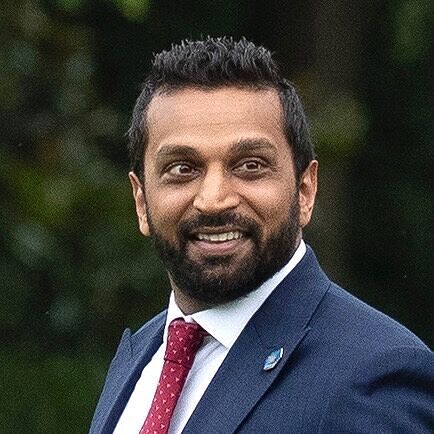Mamdani struggles with many Jewish, Christian voters, while excelling among Muslims
Hold onto your hats, folks -- NYC mayoral hopeful Zohran Mamdani’s latest polling numbers are a masterclass in political polarization.
A recent Quinnipiac poll paints a stark picture of Mamdani’s support, showing him floundering among Jewish, Protestant, and Catholic voters while dominating among non-Christian, non-Jewish groups, particularly Muslims, as Front Page Magazine reports.
The numbers are brutal for Mamdani when it comes to Jewish voters. He’s scraping by with just 16% of their support, while Andrew Cuomo commands a hefty 60% and even Curtis Sliwa edges him out at 12%. That’s a tough pill to swallow for any candidate hoping to build a broad coalition.
Mamdani’s Dismal Showing with Jewish Voters
As the Quinnipiac poll bluntly states, “Cuomo gets 60% of the Jewish vote, Sliwa is at 12%, and Mamdani is at 16%.” That leaves a staggering 84% of Jewish voters looking elsewhere, a figure that speaks volumes about Mamdani’s inability to connect with this demographic.
Some skeptics even argue that the 16% might be inflated, suggesting certain respondents classified as Jewish could be progressive activists with tenuous ancestral claims.
This notion of questionable ancestry isn’t new in today’s political circus. The poll commentary wryly notes, “We’re living in a world where AOC at one point claimed to have Jewish ancestry.” It’s a sharp reminder that identity politics can muddy the waters of voter data, leaving us to wonder who’s really in Mamdani’s corner.
But Jewish voters aren’t the only group giving Mamdani the cold shoulder. His support among Christians is equally dismal, with only 36% of Protestants and a measly 28% of Catholics backing him. These figures suggest a profound disconnect with traditional religious communities that might see his platform as out of step with their values.
Religious Divide Deepens for Mamdani
Indeed, the Quinnipiac findings hammer this point home: “He’s got the backing of only 36% of Protestants and 28% of Catholics.” That’s not just a stumble -- it’s a full-on faceplant among voters who often prioritize faith in their political choices. For a candidate aiming for broad appeal, these numbers are a glaring red flag.
Yet, Mamdani isn’t entirely without a base. He’s pulling in respectable support from Black and Hispanic voters, clocking in at 48% and 43%, respectively. However, the data suggests these supporters largely fall outside religious circles, which raises questions about the depth of his coalition.
On that note, the poll analysis offers a telling insight: “So who are those black and Hispanic voters? Very few of them are religious.” This highlights how Mamdani’s appeal seems tethered to secular or less traditionally devout demographics, a strategy that might limit his reach in more faith-driven communities.
Strong Support from Non-Christian Groups
Where Mamdani truly shines, however, is among the so-called “Others” category. This group, encompassing Buddhists, Hindus, and Muslims, appears to be his stronghold, with speculation that Muslim voters might be offering near-universal backing. It’s a niche but powerful base in an increasingly diverse political landscape.
His dominance in this category isn’t just a hunch—it’s backed by analysis suggesting he could be nearing 50% support among these non-Christian, non-Jewish groups. That’s a significant chunk, especially if Muslim voters are indeed rallying behind him en masse. It’s a bright spot in an otherwise rocky polling picture.
Still, relying heavily on one segment while alienating others is a risky play. Mamdani’s numbers reflect a candidate who’s carved out a loyal following among specific minorities but struggles to resonate with the broader religious electorate. It’s a balancing act that could define his political future.
Can Mamdani Bridge the Religious Gap?
For conservatives watching this unfold, Mamdani’s predicament underscores the pitfalls of a progressive agenda that often seems tone-deaf to traditional values. While his support among Muslim and secular voters is noteworthy, it’s hard to ignore the vast swaths of Jewish and Christian communities turning away. The question is whether he can -- or even wants to -- mend those fences.
At the end of the day, politics is about building bridges, not just fortifying islands. Mamdani’s current trajectory suggests he’s got the latter down pat, but the former remains a steep climb. For those of us who value a unifying approach over divisive identity politics, his polling serves as a cautionary tale.




